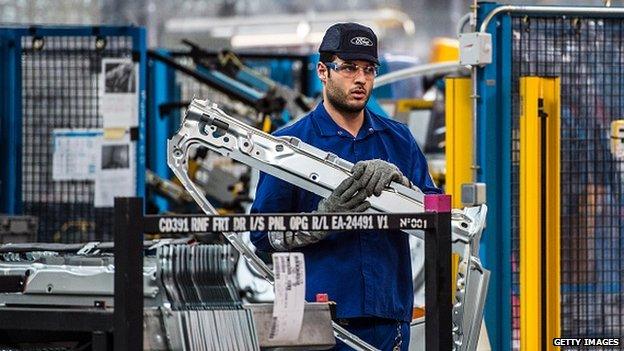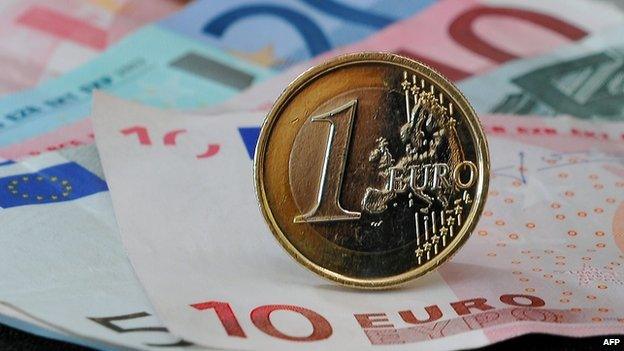Weak euro boosts eurozone manufacturing, says PMI survey
- Published

Spain and Ireland are leading the growth in eurozone manufacturing.
Manufacturing and jobs are picking up in the eurozone thanks to the weaker euro, according to a survey.
Markit's purchasing managers' index (PMI), external for the manufacturing sector rose to a 10-month high of 52.2 in March as eurozone factories benefited from the weaker currency.
It is the 23rd consecutive month that the index has been over 50, indicating growth rather than contraction.
Companies created jobs at the quickest pace for three and a half years.
"March saw the sharpest increase in new export orders since April 2014. Companies reported that the weaker euro was the main factor driving new export orders higher," said Chris Williamson, Markit's chief economist.
"This is still a fledgling recovery, however, and the overall rate of expansion remains only modest."
Ireland and Spain led the board with PMI figures of 56.8 and 54.3 respectively, while growth also improved in Germany, Italy and the Netherlands.
But PMI readings in France, Greece and Austria remained below 50.
The euro has fallen nearly 12% since January due to the expectation and then implementation of the European Central Bank's policy of increasing the money supply through quantitative easing.
As a result, foreign imports into the eurozone have been more expensive, providing less competition for domestic firms, who have also found it easier to sell their goods abroad more cheaply.
- Published5 March 2015

- Published4 March 2015
